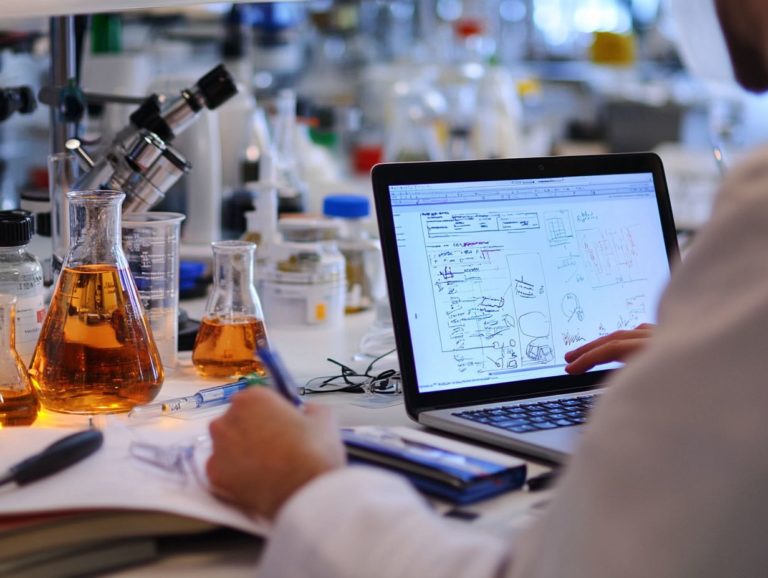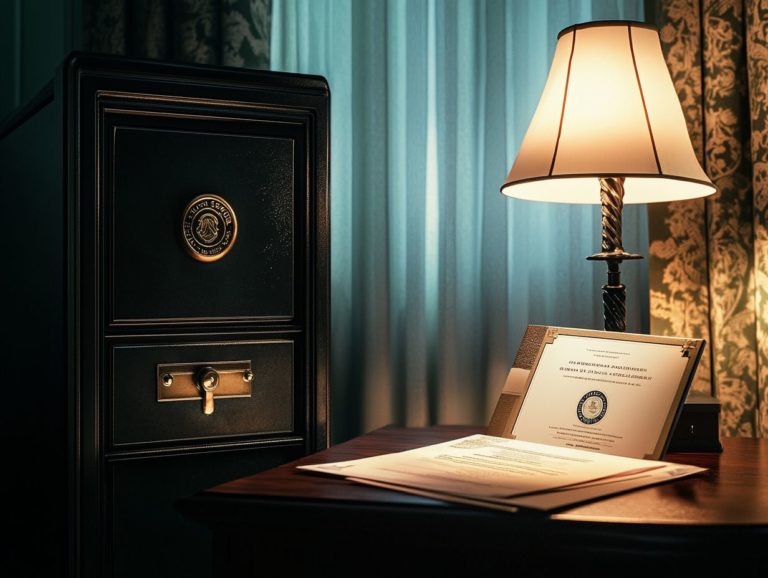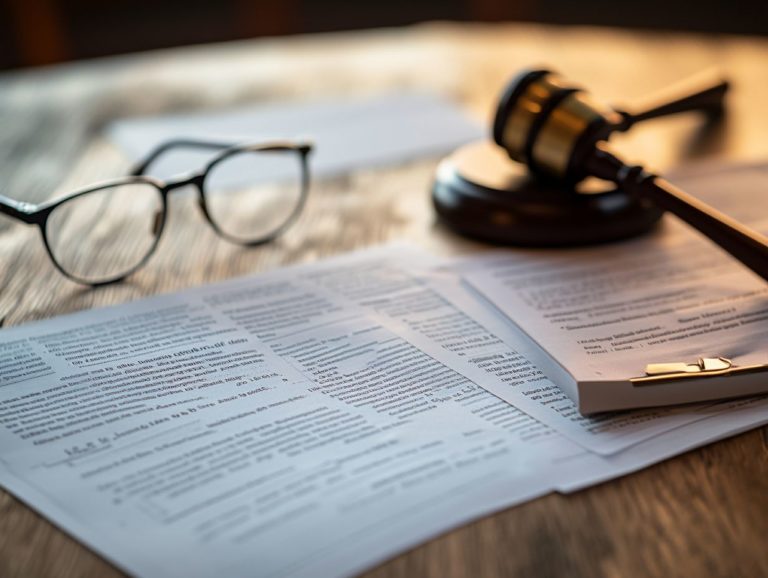Understanding the Impact of AI on Patent Law
Artificial Intelligence is transforming a multitude of fields, and patent law is certainly no exception!
As AI technologies progress, their incorporation into patent applications introduces innovative possibilities along with notable challenges. This article explores the current landscape of AI in patent law, showcasing real-world examples, the complexities faced by legal professionals, and the potential benefits and concerns that arise.
Looking ahead, you will discover how patent law may evolve and what these changes mean for those engaged in the field. Join us as we uncover the importance of adapting to these shifts in patent law.
Contents
Key Takeaways:
- AI is increasingly used in patent applications, presenting challenges and controversies.
- The impact of AI on patent law includes advancements and potential benefits.
- However, it raises concerns and requires adaptation by patent law professionals.
- Understanding AI’s role in patent law is crucial for navigating this evolving landscape.
- Proper protection of intellectual property rights is essential!
Defining AI and Patent Law
The intersection of artificial intelligence (AI) and patent law presents a dynamic and ever-evolving landscape. Laws that protect inventions must adapt to the unique challenges posed by AI technology.
As AI systems increasingly participate in the inventive process, you may question whether machines can be recognized as human inventors. This question has significant implications for patent eligibility and the legal doctrines that underpin innovation.
The impact of AI-generated inventions on traditional patent protection highlights an urgent need for clarity within the patent system. Landmark cases like DABUS and Thaler v. Vidal challenge long-held concepts of inventorship, compelling you to consider how these developments might reshape the future of intellectual property.
Current State of AI in Patent Law
The current state of AI in patent law presents a fascinating yet intricate landscape of challenges and advancements.
The United States Patent and Trademark Office (USPTO) navigates this emerging terrain, finding that AI technology is reshaping patent application processing.
With machine learning algorithms a type of AI that learns from data to improve over time and AI systems becoming more prominent, the patent landscape is transforming. This leads to legal complexities surrounding inventorship, patentability standards, and the protection of trade secrets.
Examples of AI in Patent Applications
Several groundbreaking examples of AI-generated inventions have emerged, particularly those linked to the DABUS system. These cases ignite global conversations about the future of innovation and inventorship in our AI-driven world.
These remarkable inventions illustrate AI systems’ potential to contribute meaningfully to the inventive process, prompting critical questions about their eligibility for patent protection.
One standout invention improves container management for food delivery, demonstrating how AI can tackle complex logistical challenges effectively. Another intriguing example features an innovative light-modulating device, crafted by DABUS through analyzing existing technologies and novel combinations of ideas.
These inventions showcase AI’s ability to generate original concepts and challenge traditional definitions of inventorship and ownership within patent laws.
As regulatory bodies worldwide contend with these developments, the implications for future innovation and patent strategies could be momentous. We may see a redefinition of who qualifies as an inventor in an increasingly automated landscape!
Challenges and Controversies
AI in patent law raises many challenges. One major issue is recognizing AI as an inventor and fitting AI-created ideas into our current legal frameworks.
As innovation in AI accelerates, the regulatory landscape must confront pressing questions about accountability and intellectual property rights. It is crucial to understand how AI inventorship reshapes our traditional views on human contribution.
These discussions highlight the balance between fostering innovation and protecting rights. If AI systems are considered inventors, complex dilemmas arise about patent ownership. Should credit go to the AI’s developers, the users, or even the AI itself?
This ambiguity opens the door to potential legal disputes and threatens to stifle innovation. Inventors might hesitate to share their creations for fear of losing control.
The ethical implications of letting machines take the lead are significant. They challenge societal values and question the essence of human ingenuity.
Impact of AI on Patent Law
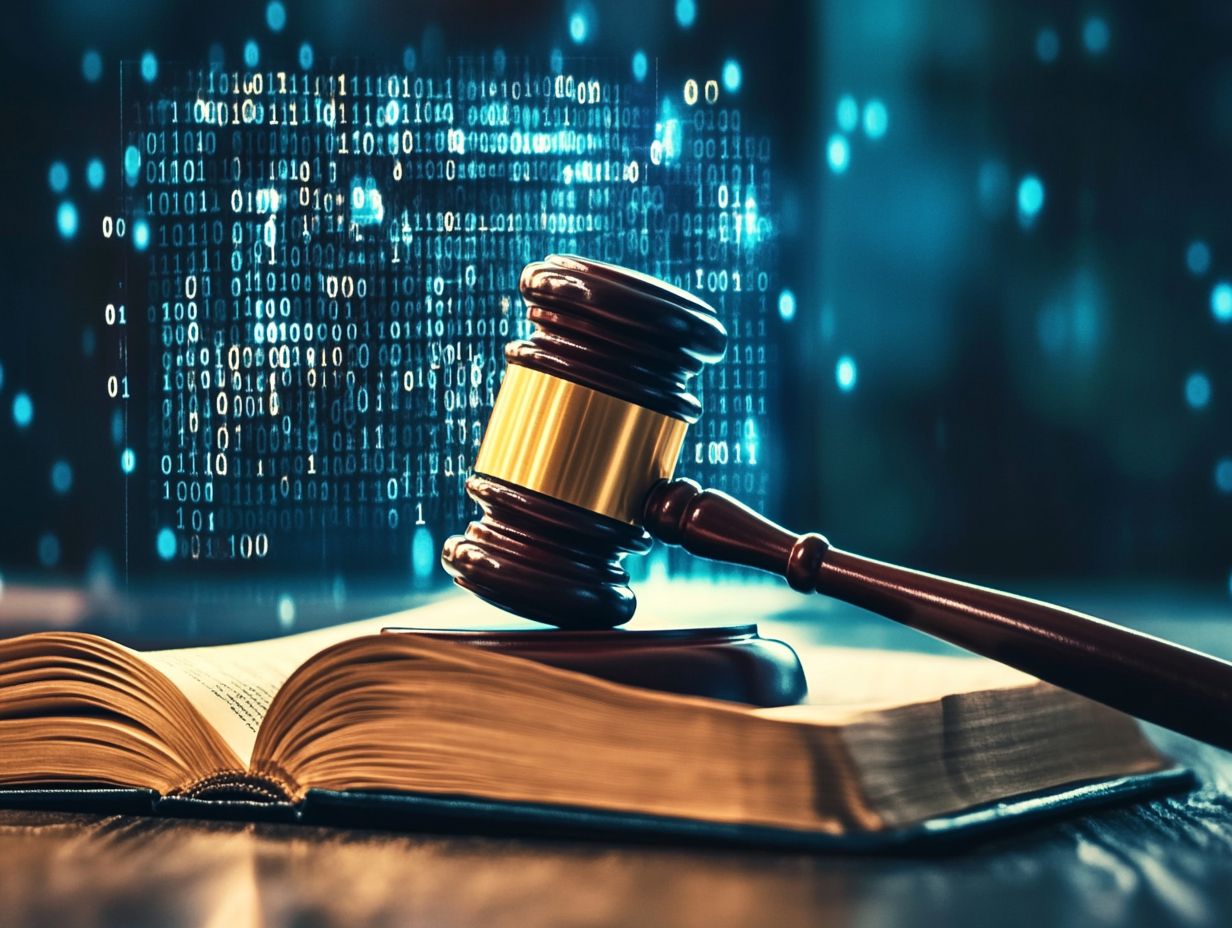
The impact of AI on patent law is transformative, bringing significant advancements that redefine business innovation and creative solutions within intellectual property.
As AI technology evolves, its influence on the patent system compels a reassessment of traditional notions of inventiveness and patent eligibility. Embracing this shift is essential for navigating modern innovation complexities.
Advancements and Changes
Recent advancements in AI technology have led to significant changes in who can get a patent. Regulators and legal professionals are actively addressing the challenges posed by new scenarios introduced by AI systems.
This evolving regulatory framework seeks to balance safeguarding intellectual property and fostering innovation in an increasingly automated world.
As artificial intelligence continues to develop rapidly, the complexity surrounding intellectual property rights grows. Traditional patent standards, which often depend on a clear human inventor, are under scrutiny as AI-generated inventions challenge established norms.
Legal experts are now exploring how existing laws can be adapted or redefined to accommodate these groundbreaking technologies. The implications are substantial, affecting not only patent applicants but entire industries as businesses seek new opportunities and competitive advantages.
Potential Benefits and Concerns
The potential benefits and concerns of AI in patent law present a fascinating dual narrative. AI assistance can unleash unprecedented levels of business innovation while also raising important ethical questions and legal complexities surrounding ownership and proprietary rights.
As businesses leverage AI technologies for research and development (R&D), the implications for trade secrets and patent protection become intricate. This evolving landscape requires careful examination of how AI-driven processes enhance creativity, enabling teams to generate novel ideas and solutions quickly.
However, significant challenges accompany these advancements. Businesses must navigate legal responsibilities, particularly concerning inventorship attribution and safeguarding confidential information.
There is also the risk of inadvertently exposing proprietary insights through AI collaborations. This prompts critical questions about how much AI can contribute to innovation without jeopardizing essential trade secrets.
Therefore, balancing AI-enhanced creativity with the need for ethical diligence is vital as organizations chart their future paths.
Future of AI in Patent Law
The future of AI in patent law is packed with thrilling opportunities and forecasts regarding the evolution of the patent landscape in light of AI applications and their role in driving innovation.
As legal frameworks adapt to swift advancements in AI technology, new paradigms for intellectual property rights are expected to emerge. This evolution will influence the relationship between AI-generated inventions and conventional patent systems, paving the way for a transformed approach to intellectual property.
Predictions and Possibilities
Predictions about AI applications hint at a future where advanced algorithms significantly impact patent law. This evolution may lead to innovative approaches to protecting creations and inventions. As technology advances, AI’s role in the inventive process could challenge traditional views on patent rights.
This shift may require a reassessment of existing frameworks. Lawmakers and legal experts will need to explore how AI-generated inventions are categorized and who holds the rights to them. The emergence of AI technologies could spark discussions around ownership, especially when machines contribute in ways that blur the lines between human and artificial creativity.
You may notice trends showing that patent offices are increasingly using AI systems to evaluate applications, streamline processes, and identify potential infringements. As these systems become more sophisticated, they could enhance transparency and efficiency, reshaping the landscape of intellectual property enforcement and compliance.
Adapting to the Changes
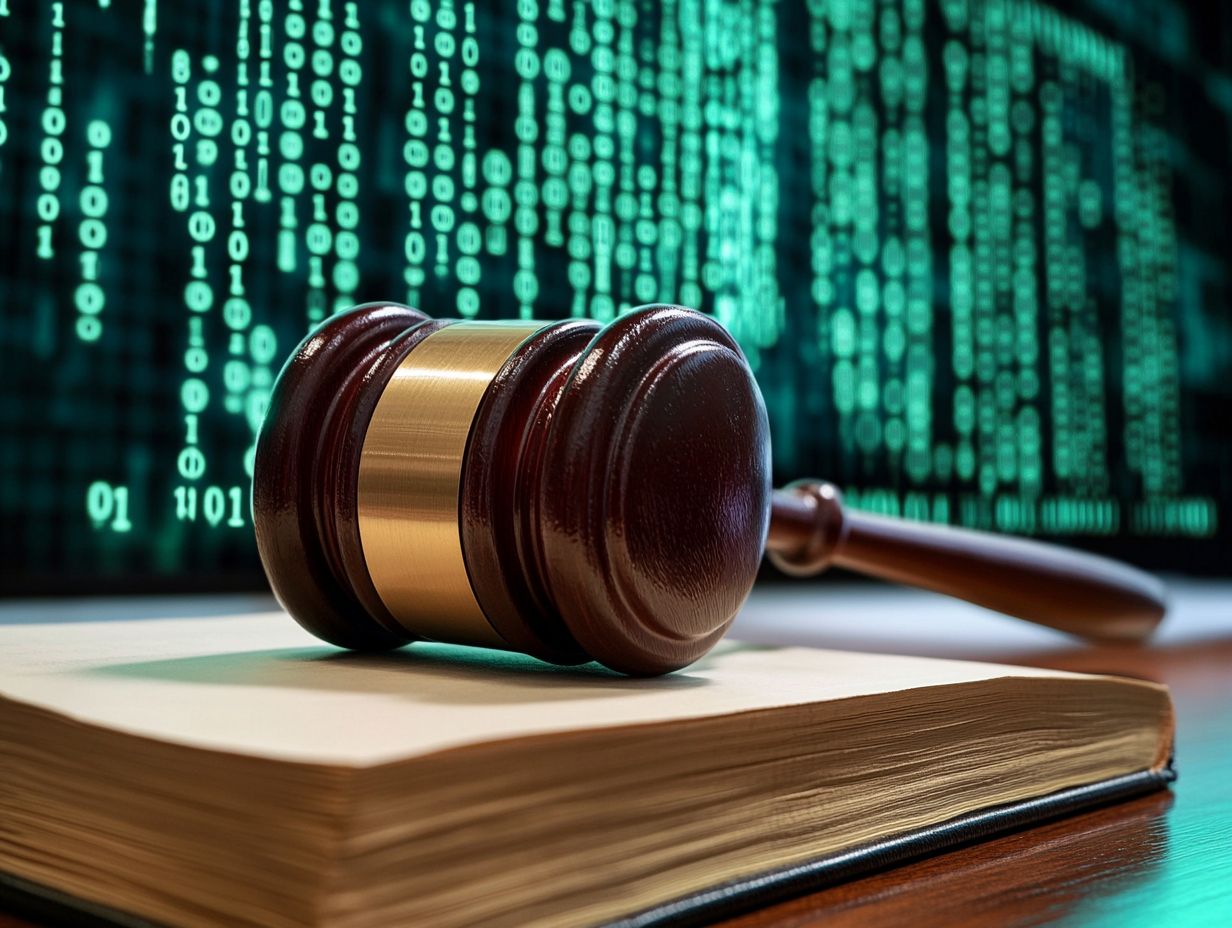
Adapting to the shifts introduced by AI in patent law requires proactivity and preparation for the evolving landscape shaped by regulatory changes and the influence of AI technology.
As these transformations take place, embracing new strategies and insights that align with emerging standards in the field is essential.
How Patent Law Professionals Can Prepare
To prepare for the future of AI in patent law, commit to continuous learning and stay informed about evolving AI regulations and legal frameworks. Understanding the implications of AI technologies on patent law will help you navigate the complexities of this field confidently.
This proactive approach involves seeking advanced educational opportunities, attending workshops on AI-related legal issues, and participating in seminars about the intersection of technology and intellectual property.
Building relationships with peers and industry experts offers valuable insights and resources, allowing you to stay ahead of trends and challenges.
Engaging in relevant online forums and discussions will expand your knowledge and foster a collaborative atmosphere where innovative ideas can thrive. Positioning yourself as an active participant in this dialogue sets the stage to become a leader in this evolving field.
Overall Impact and Importance of Understanding AI in Patent Law
Understanding the overall impact of AI in patent law is crucial for legal professionals. It is shaping the future of intellectual property, and for a deeper insight into this topic, understanding the intersection of copyright and AI is essential as it introduces new complexities that must be addressed for effective protection and innovation.
The integration of AI technology into the patent system underscores the urgency of grasping these developments. Navigating this transformative landscape demands a proactive approach in understanding the delicate intersection of technology and law.
By staying informed about emerging trends, you can better advise clients on the risks and opportunities associated with AI-generated inventions. Adapting to these changes allows you to advocate for frameworks that safeguard innovations and foster a climate conducive to growth and creativity.
Being well-versed in AI’s implications will enable you to counsel clients effectively and play a pivotal role in shaping the future of property rights in an increasingly digital world.
Frequently Asked Questions
What is the impact of AI on patent law?
The impact of AI on patent law is significant. AI can change how patents are filed and who can own them, introducing new challenges and opportunities in the process of innovation.
How does AI affect patentability requirements?
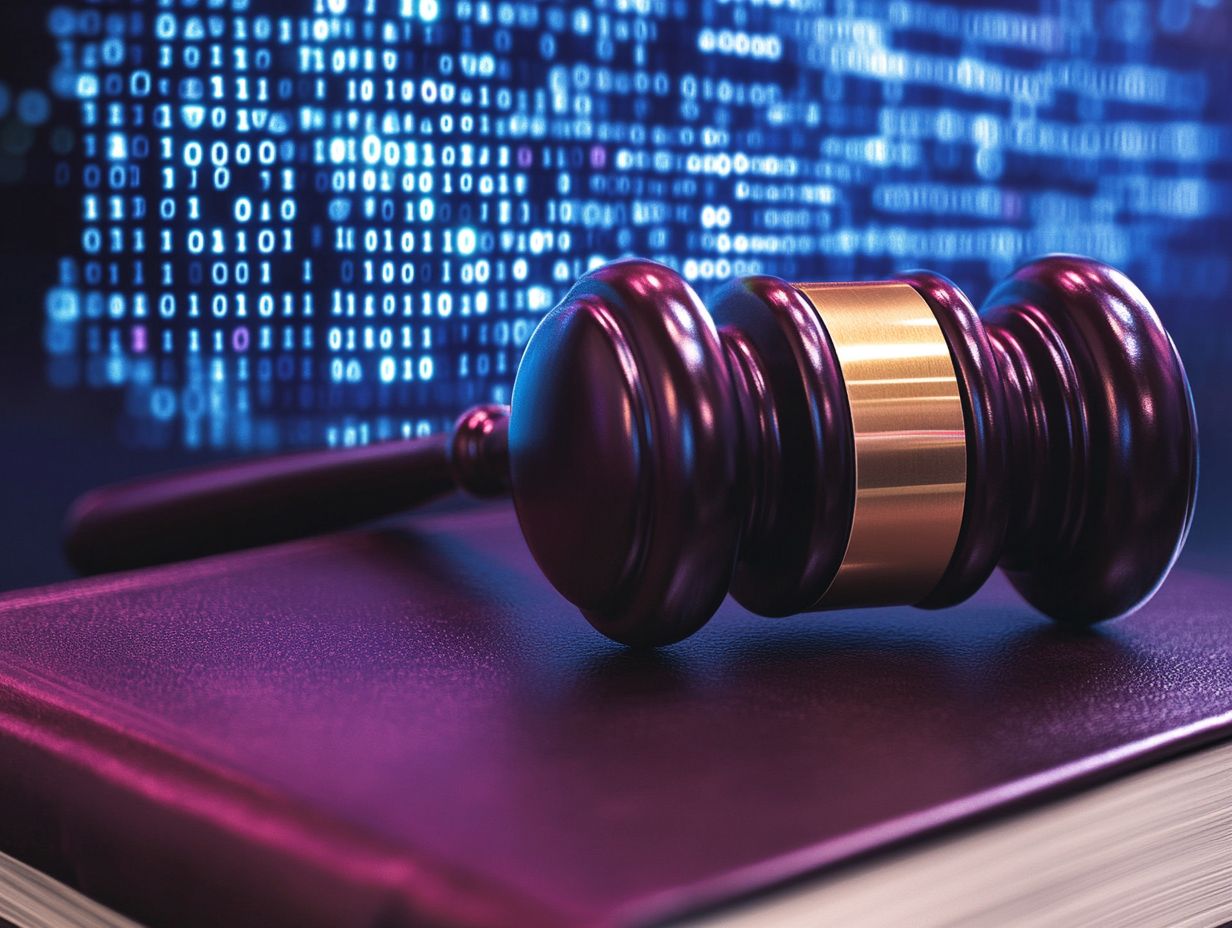
AI can impact patentability in key ways. AI-generated inventions might struggle to meet the novelty and not obvious requirements since they often build on existing data and algorithms.
Furthermore, using AI raises questions about who is the true inventor and who owns the patent.
What challenges does AI pose for patent law?
AI presents several challenges for patent law. Determining the actual creator of an AI-generated invention can be tricky.
Additionally, AI’s ability to produce countless similar inventions complicates how we define patent protection.
Will AI replace human inventors in patent law?
While AI can create and file patents independently, it is unlikely to replace human inventors in patent law. The law still requires a person to be listed as the inventor on a patent.
Human creativity and ingenuity remain essential for many inventions.
How can patent law keep up with the development of AI technology?
To adapt to rapidly evolving AI technology, patent law may need to change. This could involve updating patentability requirements.
Establishing clear guidelines for defining who created AI-generated inventions is also crucial.
What are the potential benefits of AI for patent law?
Despite its challenges, AI offers exciting benefits for patent law. For instance, AI can streamline patent searches and enhance analysis, making the patent process more efficient.
Moreover, it can help identify potential patent infringements and assist in litigation. Imagine how this could revolutionize the way we navigate patent law!


